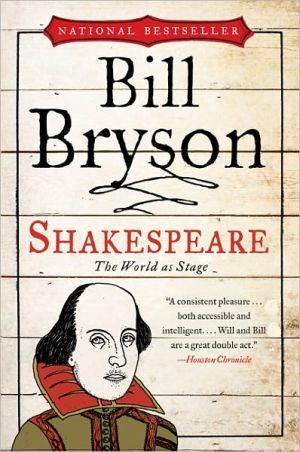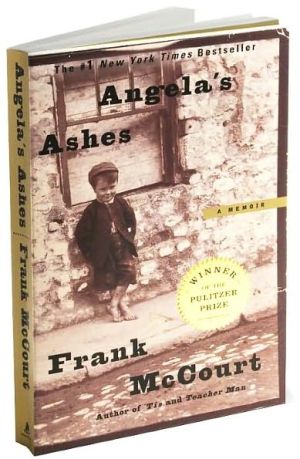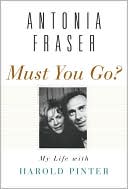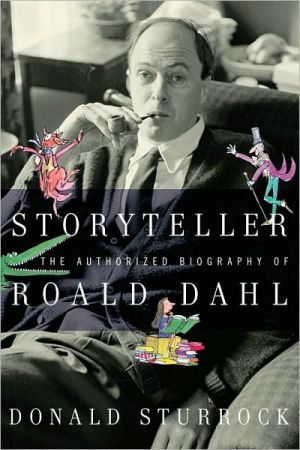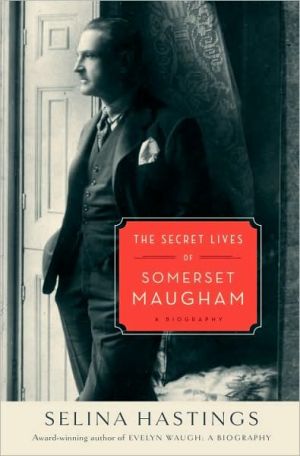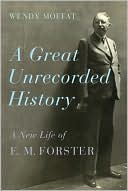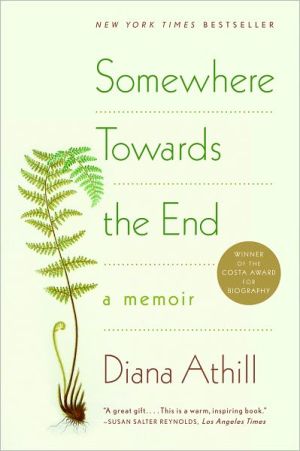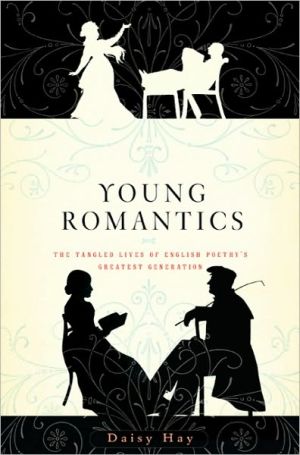Shakespeare: The World as Stage (Eminent Lives Series)
William Shakespeare, the most celebrated poet in the English language, left behind nearly a million words of text, but his biography has long been a thicket of wild supposition arranged around scant facts. With a steady hand and his trademark wit, Bill Bryson sorts through this colorful muddle to reveal the man himself. His Shakespeare is like no one else's—the beneficiary of Bryson's genial nature, his engaging skepticism, and a gift for storytelling unrivaled in our time.
Search in google:
William Shakespeare, the most celebrated poet in the English language, left behind nearly a million words of text, but his biography has long been a thicket of wild supposition arranged around scant facts. With a steady hand and his trademark wit, Bill Bryson sorts through this colorful muddle to reveal the man himself. Bryson documents the efforts of earlier scholars, from today's most respected academics to eccentrics like Delia Bacon, an American who developed a firm but unsubstantiated conviction that her namesake, Francis Bacon, was the true author of Shakespeare's plays. Emulating the style of his famous travelogues, Bryson records episodes in his research, including a visit to a bunkerlike room in Washington, D.C., where the world's largest collection of First Folios is housed. Bryson celebrates Shakespeare as a writer of unimaginable talent and enormous inventiveness, a coiner of phrases ("vanish into thin air," "foregone conclusion," "one fell swoop") that even today have common currency. His Shakespeare is like no one else's the beneficiary of Bryson's genial nature, his engaging skepticism, and a gift for storytelling unrivaled in our time. The Barnes & Noble Review What a match: Bill Bryson, expat American with a well-known love of the English language (see The Mother Tongue, 1990), takes on the life of Will Shakespeare (1564-1616), with his exceedingly well known ability to shape that language into works of genius. The result is a triumph of patience and insight over the obstacle of few facts. We know so little about the great poet and playwright that Bryson manages to indulge some of the wackier speculations, if only for sport. But his touch is, as usual, light and genial. Sifting through the slim evidence of Shakespeare's life, Bryson avoids "the urge to switch from conjunctive to indicative" that characterizes so many of the previous biographers. Using the best scholars and critics to amplify his own amateur research, he takes us to both the National Archives in London -- where he describes the mess that is 16th-century orthography -- and the basement of the Folger Library's collection of First Folios. This visit occasions Bryson's smart excursus on early bookmaking and allows him to celebrate the real heroes of Shakespeare's afterlife: the friends who preserved most of his plays in that first collected edition, itself the Holy Grail of Shakespeare scholarship. The final chapter, a survey of the silly debunkers of Shakespeare's authorship, is a real hoot, with Bryson at his wittiest. Not since Marchette Chute's somewhat prudish Shakespeare of London (1949) have we had such a succinct, reliable, and enjoyable Shakespeare bio for general readers. Bryson penetrates the mystery that was the life -- for the majesty that is the work. --Thomas De Pietro
\ Library JournalDespite the numerous works about Shakespeare, very little can actually be proven about his life, his works, or even his appearance. Bryson views Shakespeare's life through his own unique lens, pointing out what can't be proven (what he looked like, for instance) and speculating about the historical period in which he lived. If it seems strange that so little is known about Shakespeare, it becomes even more frustrating to learn that so little is actually proven about his times. His tombstone and memorial raise more questions and settle nothing about his life. The final section of Bryson's book explores the ongoing debate about whether or not William Shakespeare from Stratford-upon-Avon actually wrote the works attributed to him. Bryson masterfully shows why none of the contenders to his fame could actually have mastered the phrasing, style, wit, and meaning of the million words of text he left behind-except this man known as Shakespeare. Part of the "Eminent Lives" series, this entertaining gem is highly recommended for all audio collections.-Gloria Maxwell, Metropolitan Community Coll. Lib., Kansas City, MO\ Copyright 2006 Reed Business Information.\ \ \ \ \ Kirkus ReviewsA telling glance at one of history's most famously unknowable figures. As sometimes happens with expatriates, journalist Bryson (The Life and Times of the Thunderbolt Kid: A Memoir, 2006, etc.) often turned his attention to his native America during his 20-year residence in England (Made in America, 1995, etc.). Apparently he's now been back home long enough to look the other way in this 12th volume in James Atlas's well-received Eminent Lives series. And who better fits the bill for this assortment of brief biographies than Shakespeare, the literary behemoth who practically defines the Western canon yet boasts a CV that could hardly be slimmer. As the typically wry Bryson observes, "It is because we have so much of Shakespeare's work that we can appreciate how little we know of him as a person. . . . faced with a wealth of text but a poverty of context, scholars have focused obsessively on what they can know." Bryson is just as happy to point out what we can't. To him, Shakespeare is the "literary equivalent of an electron-forever there and not there." Indeed, he makes so much of the fact that so much has been made from the singularly few known facts of the Bard's life that one might say this thin volume's raison d'etre is to identify the many paradoxes surrounding all things Shakespeare, which Bryson candidly illuminates in several deft turns of phrase. That is as good a tack as any to take in this sort of Cliffs Notes-style overview of the rich afterlife and times of Shakespeare, recognized as great, Bryson claims, for his "positive and palpable appreciation of the transfixing power of language"-a point on which even those who don't believe Shakespeare was Shakespeare would agree, anda trait he happens to share with his biographer. Shakespeare redux for the common reader.\ \ \ The Barnes & Noble ReviewWhat a match: Bill Bryson, expat American with a well-known love of the English language (see The Mother Tongue, 1990), takes on the life of Will Shakespeare (1564-1616), with his exceedingly well known ability to shape that language into works of genius. The result is a triumph of patience and insight over the obstacle of few facts. We know so little about the great poet and playwright that Bryson manages to indulge some of the wackier speculations, if only for sport. But his touch is, as usual, light and genial. Sifting through the slim evidence of Shakespeare's life, Bryson avoids "the urge to switch from conjunctive to indicative" that characterizes so many of the previous biographers. Using the best scholars and critics to amplify his own amateur research, he takes us to both the National Archives in London -- where he describes the mess that is 16th-century orthography -- and the basement of the Folger Library's collection of First Folios. This visit occasions Bryson's smart excursus on early bookmaking and allows him to celebrate the real heroes of Shakespeare's afterlife: the friends who preserved most of his plays in that first collected edition, itself the Holy Grail of Shakespeare scholarship. The final chapter, a survey of the silly debunkers of Shakespeare's authorship, is a real hoot, with Bryson at his wittiest. Not since Marchette Chute's somewhat prudish Shakespeare of London (1949) have we had such a succinct, reliable, and enjoyable Shakespeare bio for general readers. Bryson penetrates the mystery that was the life -- for the majesty that is the work. --Thomas De Pietro\ \
